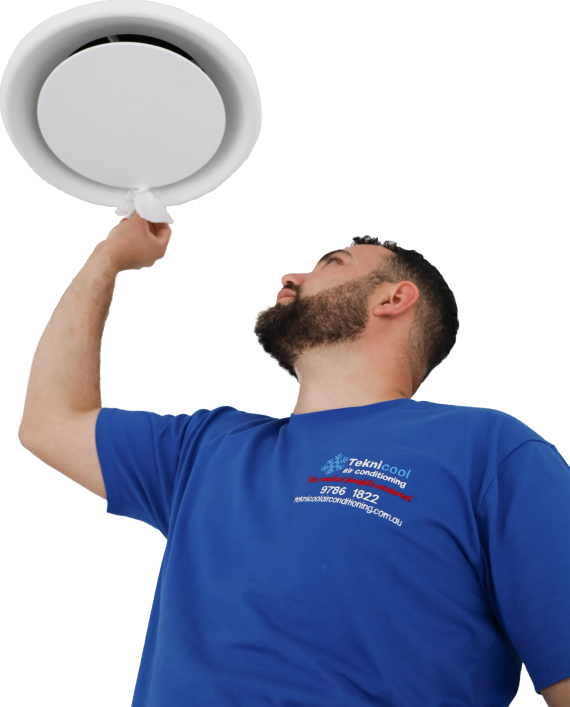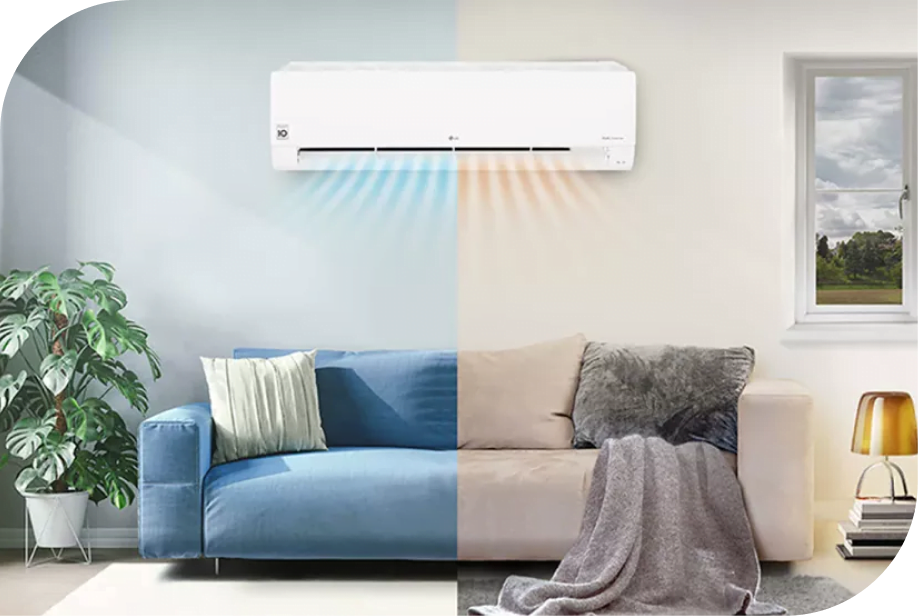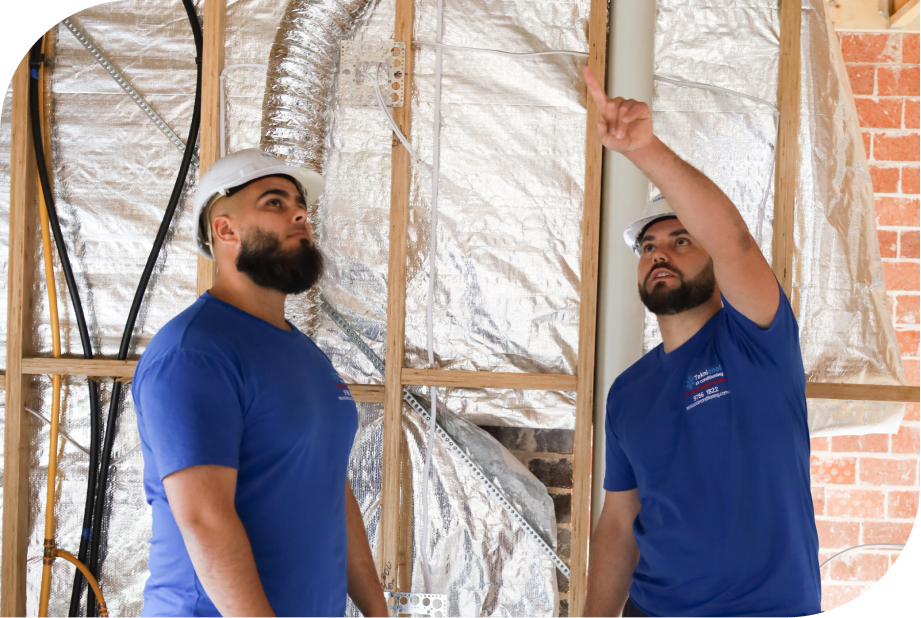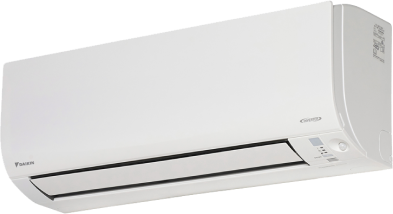As professional copywriting journalists, we understand the importance of maximizing the lifespan of a ducted air conditioning system. In Sydney, where temperatures can soar during the summer months, having a reliable and efficient air conditioner is essential for both our homes and businesses. To help our readers understand the factors that influence the lifespan of these systems, we have delved into the topic and compiled valuable insights for optimal longevity.
Key Takeaways:
- Ducted air conditioning systems are crucial for comfort and productivity during hot weather in Sydney.
- Maximizing the lifespan of a ducted air conditioning system requires regular maintenance, knowledge of usage patterns, and understanding environmental factors that influence performance.
- Investing in energy-efficient systems and professional maintenance services can potentially extend the lifespan of a ducted air conditioning system.
Factors that Influence the Lifespan of Ducted Air Conditioners
Understanding the factors that can impact the lifespan of a ducted air conditioner is important for homeowners and businesses in Sydney looking to maximize their investment. There are several key factors that can influence the lifespan of these systems, including:
- Regular Maintenance: Regular maintenance is essential to ensure optimal performance and longevity of ducted air conditioners. Neglecting maintenance tasks such as cleaning air filters, inspecting ductwork, and checking refrigerant levels can cause the system to malfunction and shorten its lifespan.
- Usage Patterns: Usage patterns can also affect the lifespan of ducted air conditioners. Overuse during peak periods, incorrect temperature settings, and inadequate insulation can place unnecessary strain on the system and cause it to wear out faster.
- Environmental Factors: The environment in which the system is installed can also impact its durability. High humidity levels, extreme temperatures, and corrosive substances can cause damage to the system’s components, resulting in costly repairs or premature replacement.
- System Quality: Choosing a high-quality system from a reputable brand can significantly improve the lifespan of a ducted air conditioner. Investing in an energy-efficient system with a comprehensive warranty can provide peace of mind and ensure reliable operation for years to come.
By understanding these factors and taking steps to address them, homeowners and businesses can extend the lifespan of their ducted air conditioning systems and avoid costly repairs or replacement. In the following sections, we will explore each of these factors in more detail and highlight the steps that can be taken to optimize the lifespan of ducted air conditioners.
Regular Maintenance for Optimal Longevity
Regular maintenance is crucial for extending the lifespan of your ducted air conditioning system. Without proper upkeep, your system may suffer from increased wear and tear, reduced efficiency, and potential damage that could shorten its lifespan.
One essential maintenance task is cleaning or replacing the air filters regularly. Dirty filters can obstruct airflow, forcing your system to work harder and consume more energy, which can lead to overheating and potential damage. We recommend cleaning or replacing your filters every three months to ensure optimal airflow and to prevent any potential issues.
Proper maintenance can reduce the need for expensive repairs and prolong the lifespan of your system
Another important task is scheduling professional inspections and tune-ups. Our experienced technicians can inspect your system for any signs of wear and tear, potential issues, or damage and perform necessary repairs or replacements. Regular tune-ups can also help improve the efficiency of your system, resulting in reduced energy consumption and utility costs.
It’s also important to keep an eye on your usage patterns. High usage periods, particularly in extreme weather conditions, may cause undue stress on your system and lead to its premature failure. We recommend setting your thermostat to a consistent temperature and avoiding drastic temperature changes that can strain the system.
By investing in regular maintenance and following these tips, you can help extend the lifespan of your ducted air conditioning system, reduce energy consumption, and improve the overall efficiency of your system.
Usage patterns and their impact on lifespan
In addition to regular maintenance, usage patterns can also have a significant impact on the lifespan of ducted air conditioning systems. Using the system excessively or outside of its recommended settings can cause unnecessary wear and tear, shortening its overall lifespan.
One common mistake is keeping the system running at full blast 24/7, even when no one is present in the building. This not only wastes energy but also increases the strain on the system, potentially leading to premature failure.
Alternatively, setting the thermostat too low or too high can also impact the system’s lifespan. Running the air conditioner at excessively low temperatures can cause the evaporator coil to freeze and damage the compressor, reducing the lifespan of the system.
It is essential to maintain a reasonable temperature range and install a programmable thermostat to control usage patterns effectively. Programming the system to run at higher temperatures during periods of low occupancy and lower temperatures during peak usage periods can contribute to a longer lifespan.
Environmental factors and their effect on durability
Environmental factors can have a significant impact on the durability of a ducted air conditioning system. High humidity levels can cause excess moisture buildup on the system’s components, leading to corrosion and degradation over time. Extreme temperatures can also put stress on the system, leading to premature wear and tear.
In addition, exposure to pollutants and contaminants in the air can cause damage to the system’s components, including the compressor and fan. Saltwater exposure can be particularly detrimental to outdoor units in coastal areas, leading to rust and corrosion.
To extend the lifespan of a ducted air conditioner, it’s important to consider these environmental factors and take steps to mitigate their impact. This can include installing protective coverings or shields on outdoor units, scheduling regular cleaning and maintenance, and choosing high-quality components designed for durability in harsh environments.
Choosing the Right System for Longevity
When it comes to selecting the right ducted air conditioning system for longevity, there are several factors to consider. By choosing the right system, you can ensure optimal performance and extend the lifespan of your air conditioning unit.
One crucial factor to consider is energy efficiency. Investing in an energy-efficient system can not only reduce your energy consumption but also potentially increase the lifespan of your unit. When choosing a system, look for those with high energy-efficiency ratings, such as those with Energy Star or NABERS ratings.
Another factor to consider is brand reputation. Stick to reputable brands with a proven track record for quality and durability. You may be tempted to opt for cheaper, lesser-known brands, but this can be a risky choice as these units may not last as long or perform as efficiently.
Warranty coverage is also an important consideration. Look for systems with comprehensive warranty coverage, including parts and labor, to ensure that any potential issues are covered. This can give you peace of mind and help you avoid costly repairs or replacement in the long run.
Maintenance tips for extending the lifespan
Regular maintenance is crucial for extending the lifespan of your ducted air conditioning system. Here are some maintenance tips to help prolong the life of your unit:
- Keep the outdoor unit clear of debris, such as leaves and branches, to allow proper airflow.
- Clean or replace air filters every 1-3 months, depending on usage. Clogged filters can reduce airflow and cause strain on the system.
- Inspect and clean the evaporator coil annually to prevent buildup of dirt and debris that can reduce efficiency.
- Check the ductwork for any leaks or gaps which can lead to inefficiency and strain on the system.
- Increase the thermostat temperature setting by 2-3 degrees during peak usage periods to reduce strain on the system.
- Invest in a programmable thermostat to optimize temperature settings and reduce energy consumption.
By following these maintenance tips, you can help ensure your ducted air conditioning system runs smoothly and efficiently for years to come.
Signs of potential issues and when to seek professional assistance
As we’ve mentioned earlier, regular maintenance is crucial to keep your ducted air conditioning system running smoothly and to avoid any potential issues that may shorten its lifespan. However, even with proper maintenance, problems may still arise over time. Here are some common signs that may indicate your system needs professional assistance:
- Strange noises or odors coming from the system
- Uneven cooling throughout the building
- The system takes longer to cool the room
- Increased energy bills without any change in usage patterns
- The system shuts off or freezes frequently
If you notice any of these signs, it’s recommended to seek professional assistance immediately. Trying to fix the problem yourself may cause further damage to the system and may lead to costly repairs or even replacement. At the first hint of trouble, contact a reputable ducted air conditioning service provider in Sydney to schedule an inspection and resolve any problems before they escalate.
Energy Efficiency and Its Impact on Longevity
At our company, we strongly believe that investing in an energy-efficient ducted air conditioning Sydney system can have a significant impact on its longevity. A more energy-efficient system reduces energy consumption and lowers energy bills and potentially extends the unit’s lifespan.
When a system operates efficiently, it experiences less strain and stress, reducing wear and tear on its components. By reducing the workload on the system, energy-efficient models can help minimize the risk of damage and breakdowns, resulting in a longer and more reliable lifespan.
Additionally, energy-efficient systems often feature advanced technologies, such as variable speed compressors and smart controls, which further contribute to their durability. By optimizing the system’s performance and reducing unnecessary strain, these technologies can help extend the life of the unit.
In conclusion, when selecting a ducted air conditioning system, it is essential to consider its energy efficiency rating. By investing in an energy-efficient system, homeowners and businesses can benefit from reduced energy consumption, decreased energy bills, and potentially extended lifespan for the unit.
Common misconceptions about ducted air conditioner lifespan
There are several misconceptions about the lifespan of a ducted air conditioner that we want to address. By debunking these myths, you can make informed decisions and take appropriate actions to maximize the lifespan of your system and ensure it runs optimally for many years to come.
A bigger air conditioner lasts longer
Many people believe that a larger air conditioner will last longer, but this is not entirely true. While it is essential to purchase an appropriately sized air conditioner for your space, a bigger unit is not necessarily better. Oversized air conditioners that are too powerful for your home or business can result in higher energy bills, decreased comfort levels, and a shorter lifespan due to excessive wear and tear.
Regular maintenance is unnecessary
Another common misconception is that regular maintenance is unnecessary, and a ducted air conditioner can run without any issues. This is not true, as regular maintenance is essential to ensure optimal performance and longevity of the system. Without maintenance, dust and debris can accumulate, causing the system to work harder and potentially leading to mechanical issues.
Replacing the air conditioner is the only option
Many people believe that once their air conditioner reaches a certain age, replacement is the only option. However, with proper maintenance, some air conditioning systems can last for decades. If your ducted air conditioner is not performing optimally, consider scheduling a professional inspection to identify potential issues and determine if repairs can be made.
Air conditioners don’t need maintenance in the off-season
Another common misconception is that air conditioners don’t need maintenance in the off-season. Even when not in use, air conditioning systems can still collect dust and debris, and neglecting them can lead to potential issues when the system is turned back on. It’s essential to schedule regular maintenance, even during the off-season, to ensure optimal performance and longevity of the system.
Investing in professional maintenance services
Regular maintenance is crucial to ensuring the longevity and efficiency of your ducted air conditioning system. While there are basic maintenance tasks that you can perform yourself, investing in professional maintenance services is highly recommended.
Professional maintenance services provide a range of benefits, including:
- Expertise: Professional technicians have the training and experience to identify potential issues and provide targeted solutions.
- Efficiency: Professional maintenance services are conducted quickly and efficiently, minimizing disruption to your daily routine.
- Thoroughness: Professional technicians conduct comprehensive inspections and tune-ups, ensuring all aspects of your system are functioning optimally.
- Longevity: Regular professional maintenance helps to extend the lifespan of your system, reducing the likelihood of breakdowns and the need for costly repairs.
At Teknicool Air Conditioning, we provide professional maintenance services for ducted air conditioning systems throughout Sydney. Our experienced technicians use state-of-the-art equipment and techniques to conduct thorough inspections and tune-ups, ensuring your system operates efficiently and reliably for years to come.
If you’re due for a maintenance service, or if you have concerns about the performance of your ducted air conditioning system, contact us today to schedule an appointment. Our team is committed to providing top-quality service and support, and we stand behind our work with a satisfaction guarantee.
Conclusion
At Teknicool Air Conditioning, we understand the importance of maximizing the lifespan of your ducted air conditioning system in Sydney. By taking into consideration factors such as regular maintenance, usage patterns, environmental conditions, and investing in energy-efficient systems, you can ensure reliable and efficient cooling for years to come. It is crucial to keep up with regular maintenance tasks, such as cleaning air filters, scheduling professional inspections, and addressing potential issues promptly. Understanding your usage patterns and managing peak usage periods can also help extend the lifespan of your system. Additionally, investing in an energy-efficient system can not only reduce energy consumption but also potentially extend the lifespan of the unit. At Teknicool Air Conditioning, we offer professional maintenance services conducted by experienced technicians, emphasizing the importance of investing in these services to contribute to the longevity and efficiency of your ducted air conditioning system. By recognizing misconceptions about the lifespan of ducted air conditioners, debunking myths, and providing accurate information, individuals can make informed decisions to maximize the lifespan of their systems. In conclusion, we encourage individuals to prioritize the lifespan of their ducted air conditioning systems to ensure reliable and efficient cooling for their home or business in Sydney. At Teknicool Air Conditioning, we are committed to providing guidance, tips, and strategies to help achieve this, and we look forward to working with you to maximize the lifespan of your ducted air conditioning system.
FAQ
Q: What is the life expectancy of a ducted air conditioner?
A: The average life expectancy of a ducted air conditioner is around 15 to 20 years. However, this can vary depending on various factors such as maintenance, usage patterns, and environmental conditions.
Q: What factors influence the lifespan of ducted air conditioners?
A: Several factors can influence the lifespan of a ducted air conditioner, including regular maintenance, usage patterns, and environmental conditions. By properly maintaining the system, using it efficiently, and ensuring it operates in suitable environmental conditions, you can prolong its lifespan.
Q: How important is regular maintenance for optimal longevity?
A: Regular maintenance is crucial for ensuring the optimal longevity of a ducted air conditioning system. By performing tasks such as cleaning air filters, checking refrigerant levels, and scheduling professional inspections, you can prevent potential issues and ensure the system operates efficiently for an extended period of time.
Q: How do usage patterns impact the lifespan of ducted air conditioners?
A: Usage patterns can have a significant impact on the lifespan of a ducted air conditioner. By understanding the ideal temperature settings, managing peak usage periods, and avoiding excessive workload on the system, you can minimize wear and tear and prolong its lifespan.
Q: What effect do environmental factors have on the durability of ducted air conditioners?
A: Environmental factors such as high humidity levels and extreme temperatures can affect the durability of a ducted air conditioner. It is important to consider the environmental conditions in which the system operates and take necessary measures to protect it, such as proper insulation and ventilation.
Q: How can I choose the right system for longevity?
A: To select a ducted air conditioning system that offers longevity, consider factors such as energy efficiency, brand reputation, and warranty coverage. Choose a system that is known for its durability and has a high energy efficiency rating to ensure optimal performance and an extended lifespan.
Q: What are some maintenance tips for extending the lifespan of ducted air conditioners?
A: To extend the lifespan of a ducted air conditioning system, you should regularly clean or replace air filters, keep the outdoor unit free from debris, schedule professional inspections and tune-ups, and ensure proper airflow throughout the system. These maintenance tasks will help prevent issues and promote efficient operation.
Q: What are the signs of potential issues with ducted air conditioners and when should I seek professional assistance?
A: Signs of potential issues with a ducted air conditioner can include decreased cooling performance, unusual noises, strange odors, and increased energy consumption. If you notice any of these signs, it is recommended to seek professional assistance as soon as possible to diagnose and address the problem to prevent further damage.
Q: How does energy efficiency impact the longevity of ducted air conditioners?
A: Investing in a more energy-efficient ducted air conditioning system can not only reduce energy consumption but also potentially extend the lifespan of the unit. Energy-efficient systems are designed to operate more efficiently, resulting in less strain on the components and prolonged durability.
Q: What are some common misconceptions about the lifespan of ducted air conditioners?
A: Common misconceptions about the lifespan of ducted air conditioners include assuming they will last indefinitely without maintenance, underestimating the impact of usage patterns, and disregarding the importance of professional maintenance services. It is important to have accurate information to make informed decisions.
Q: Is investing in professional maintenance services necessary for ducted air conditioners?
A: Investing in professional maintenance services for ducted air conditioning systems is highly recommended. Regular inspections and tune-ups conducted by experienced technicians can identify and address potential issues before they become major problems, promoting optimal performance and extending the lifespan of the system.









